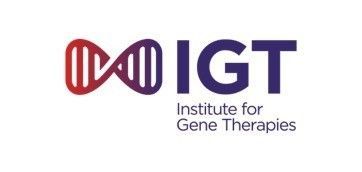Elamipretide Community Petition Cover Letter
Dear Dr. Woodcock, Ms. Lucarelli, Dr. Donohue, Dr. Stockbridge, and Dr. Smpokou,
For those of you whom we have not yet had the pleasure to meet, we are the Barth Syndrome Foundation, the only organization in the world that represents the global Barth syndrome community, which consists of a total of 255 living affected individuals (126 in the US) who are known to us, as well as their families and caregivers. We are an ultra-rare population but one that is galvanized to work toward our mission of “saving lives through education, advances in treatment, and finding a cure for Barth syndrome.” We write to you today to share the patient voice in a matter that is of the utmost importance to our community: gaining access to safe and effective treatments options. Specifically, we are writing to convey our collective experiences and preferences around an investigational drug, elamipretide, being developed by Stealth BioTherapeutics – the first and only drug in late-stage development for our ultra-rare disease.
To that end, our organization decided to launch a petition calling for the “FDA and Stealth to work together to provide access to elamipretide to people with Barth syndrome as soon as possible,” and we were bowled over that over 4,200 people signed the petition. That is extraordinary and shows just how important and urgent our engaged, united community thinks this is. I would like to share with you here a discussion of what the petition says, which will also provide some background for those of you who are not familiar with Barth syndrome or with the elamipretide development program.
In addition, we are aware of a letter (attached here) sent to the FDA signed by 26 Key Opinion Leaders who are Barth syndrome experts, most of whom have cared for Barth syndrome patients and all of whom understand the clinical aspects of this complicated disease well. The letter states we “want to have the current opportunity to prescribe elamipretide to our patients with Barth syndrome while more definitive efficacy studies, if these are deemed required, are conducted…. [We] ask that you encourage the sponsor to submit a new drug application for elamipretide for the treatment of Barth syndrome, and that you undertake to promptly review that application.”
The Barth Syndrome Patient Experience and Treatment Goals
Barth syndrome is a complex, X-linked disease that originates from variants in the TAZ gene, thus interrupting the production of the tafazzin proteins and resulting in a cascade of events that yields abnormalities in mitochondrial structure and function. The resulting phenotype is a devastating cardiac, metabolic, and neuromuscular disease. This disease presents extreme unmet need; currently there are no approved treatments for Barth syndrome.
Barth syndrome is life-threatening. Heart failure and sepsis are the two most common causes of death in Barth syndrome, and the situation is urgent. In the last 13 months alone, the Barth syndrome community has lost seven patients, predominantly due to the cardiac-related issues. This means that nearly 3% of the world’s cohort has succumbed to complications of this disease just in the last 13 months.
Of course, everyone would love to have a cure for their devastating disease. Barth syndrome individuals are eager for therapies but understand that a potential drug may not solve all of the problems of their complex syndrome. Patients are painfully aware that they have a life-limiting condition with a shortened lifespan. They want to live longer, but they also would welcome a treatment that might allow them to engage more fully in the life that they do have. Our 2018 externally led-Patient-Focused Drug Development (EL-PFDD) meeting revealed that 90% of those with Barth syndrome have cardiomyopathy or other life-threatening cardiac complications related to their disease. One patient recently wrote, “I know I am at risk of a sudden cardiac arrest and death from Barth syndrome and any medication that could reduce that risk would be wonderful.” At the same time, most Barth patients experience fatigue so profoundly that 70% of the population listed “reduce fatigue” as their top priority target for a new drug. Quality of life issues (especially extreme fatigue, weak muscles and lack of endurance) are very real and vastly debilitating to them. As one patient opined, “Fatigue is more limiting than any healthy person could even imagine.” Another stated “If [a drug] would make even a moderate difference in energy level it would be a game changer. ”
Patient Perspectives on the Results of the Phase 2/3 TAZPOWER Trial
The Barth syndrome community has had an opportunity to digest the results of the Phase 2/3 TAZPOWER trial of elamipretide and its open label extension – the first-ever late stage trial in Barth syndrome. This study included boys aged 12 years and older, representing an important third “chapter” of the disease that generally comes after 1 ) a heightened risk of acute and often life-threatening cardiac death in infancy, and 2) a honeymoon period in early childhood. At about age 12 years, cardiac issues and their associated risks often begin to return.
Our community’s perspective on the TAZPOWER trial results includes:
- Elamipretide appears to have a very acceptable safety profile in individuals with Barth syndrome. In fact, other than injection site reactions, no systemic safety or end organ toxicity issues with elamipretide have been seen.
- No serious safety issues arose in the TAZPOWER trial
- Over 1,000 patients of all kinds now have been exposed systemically to elamipretide, with no serious safety issues emerging
- There is now the equivalent of over 100 patient years of safety data on the drug with no significant problems
- In the open-label extension portion of the Phase 2/3 TAZPOWER study, treatment with elamipretide resulted in a 27% increase in average cardiac stroke volume, compared to declines shown in Barth syndrome natural history. Especially given that most patients with the disease have underlying cardiac disease, this is a very positive result that could potentially result in a longer life with improved quality.
- Positive changes in functional assessments also were measured during the open-label extension including in fatigue, muscle strength and endurance – all of which are areas of great difficulty and therefore are critically important to those with the disease. Notably, patients showed an average improvement of 116.92 meters on the six-minute walk test compared to 1.73 meters for those in the natural history control group over the same time period. This is a huge change, one well beyond what any possible differences in hope-driven effort could sustain, and represents a real quality of life improvement to those who struggle physically to keep up and engage fully in life.
- Several patients who participated in the trial have spoken up recently and discussed the life-changing differences the drug has made in their lives. During a recent virtual community gathering, one patient in the study was asked to describe how Barth syndrome affects him. He responded: “So I think a better question you need to ask is how did Barth syndrome used to affect me… It does not affect me any more… Literally, I would have to sit here for a long time to think of things that have not changed. Everything has changed. My energy level… [Before elamipretide] I would get up tired and go to bed tired and it wasn’t just like a cup of coffee would be able to fix that. It was something that I just could not control… Now I get up energized, ready to go. I am able to do anything I want to do. Strength-wise, before all this started… every quarter of a mile I would walk… I would have to take two or three breaks... There was nothing I could do about it… Now, after being on the open label extension,… I’m able to go out and exercise…. Back then, when someone told me they enjoyed exercising, I would look at them like they were crazy…. How can you enjoy exercising? I would get tired like that [snapped his fingers]… Now I enjoy exercising; I love exercising; that is the most relaxing part of my day... This is real.”
An Evidence-Driven Community Petition Seeks Collaboration and Urgency
As a result of elamipretide’s positive safety profile, coupled with these multiple positive trial findings, the Barth syndrome community requests that the following steps take place:
- FDA, Stealth BioTherapeutics, and representatives of the Barth syndrome community meet immediately to discuss how to bring elamipretride to patients with Barth syndrome;
- Stealth BioTherapeutics submits a New Drug Application (NDA) for elamipretide to FDA for approval for use in Barth syndrome;
- FDA conducts a swift review of that NDA, and approves it;
- FDA requires a post-approval study of elamipretide to confirm its clinical benefits (i.e., the community believes it would be important to require a follow-on study post-approval to monitor longer-terms benefits in all patients on the drug and to continue to take assessments of their condition in order to compare to the natural history of the disease.)
- Stealth continues to make elamipretide available through expanded access until it is brought to the market.
The Barth syndrome community’s positive view of the trial results are reflected not only in the large number of signatures that were collected on this petition but also in the 733 comments that were offered by signatories. The community voiced their eagerness for a therapy to try, especially given the positive reports of real improvements that were seen in the trial for some of their peers. The specifics of the disease most often noted (in approximate order of frequency of mention) included Barth patient’s:
- Lousy quality of life
- Concern about survival, especially due to poor cardiac function
- Inability to participate in everyday life
- Debilitating fatigue / complete absence of energy
- Profound desire for “normal life” / peer and family interactions
- Muscle weakness / severe lack of stamina
- Diminished life possibilities over time / truncated contributions and ambition
- Lack of independence
- Stress (individual’s and family member’s)
A representative verbatim sampling of 35 of these comments are provided here, grouped according to which portion of the patient community they originated from, either (1) those who had clinical trial experience with elamipretide and wanted to share their experience in the petition or (2) those who did not participate in the trial but wanted to share their preferences:
From/about those who participated in the trial:
- “I do not have to wonder if elamipretide will impact people with Barth Syndrome, I have seen it with my own eyes. My brother is a patient in the elamipretide study. I have seen him develop into a stronger, happier, more confident person since beginning the trial. He has chosen to tell a very limited number of people about his participation. Yet, several lifelong friends have noticed a change in him. He now has the physical and emotional energy to want to participate in all that life has to offer. Before elamipretide he barely had enough energy to do the bare minimum. As a child, he was very well liked and respected by his peers. Enough so, that he was elected the president of his senior class. But, there were no friends coming over to our house. As much as he wanted them to, he just didn’t have the energy. Even as a young sports enthusiast, he did not have the stamina or muscle tone to play. Our father once pointed out that he could not run. He was not strong enough to get both feet off the ground at the same time. I can’t remember a single time that our parents had to tell him to go to bed, he was always exhausted. He was unable to work while in college. Although he would have liked to, he could not have done so while maintaining his grades. Even after graduation, he struggled making friends because he didn’t have the energy to get together after work. Since beginning the elamipretide treatment, he smiles more. He has the energy to enjoy life. He enjoys exercising, and wants to attend sporting events after work. He is no longer ashamed to be the man his 20’s that needs to go straight to bed after work. He doesn’t leave family events to go nap. He is showing up, and participating fully. My son also has Barth syndrome. He was born in heart failure, and required a heart transplant to survive. We are very grateful that his new heart is doing well, but every part of his life remains impacted by Barth Syndrome. More specifically, his quality of life. As an eleven year old, he struggles in school, fatigues easily and has very low muscle tone. His body does not sweat. So, he often misses recess, and the important bonds and lessons that happen on a playground. He can’t just run down the street for a game of pick-up basketball in the summer. It is too hot and his body is unable to cool itself. It breaks my heart to see his dissolving passions because his body just can’t keep up safely. I am hopeful that elamipretide may one day help bridge the gap between his stamina and strength and that of his peers. I also wonder if elamipretide could have prevented him from even needing a heart transplant. Donor hearts are finite, precious gifts. Could this be the thing that makes just a few less children need them? It is my deep hope, and faith, that elamipretide will be an available treatment for Barth Syndrome…. Although there are very few people who live with this disease, they are not just numbers, they are real people. These boys and men matter. The quality of their lives matter. Their families matter. Their contributions matter…”
- “I was on the elamipretide for over a year and had great results than I was put on another medication that can cause allergic reactions to other medications and I started to have a reaction to the elamipretide once I'm off of the other medication I want to go back on the elamipretide. The elamipretide gave me more energy and just a all around better feeling of health as far as being able to do things with my friends and have a normal job.”
- “As a participant in the TAZPOWER study... I’ve also described the changes to Dr. Vernon using terms like the “old [W]” vs the “new [W]” as I truly feel like a new person.“
- “This drug HAS had an immensely positive impact on 2 of my boys with Barth, as it has given them an increased appetite and energy!”
- “I participated in the clinical trail and had to stop taking the drug because of an adverse reaction. We have sorted out the issue and I feel comfortable restarting Elamipretide…. I would like to see if I stayed on drug for a longer duration. The fatigue I have is debilitating. I am unable to work at all now and I would give anything to be able to have a job and work. I would love the opportunity to go back on the drug and try again Thank you very much for your consideration.”
From those who want to have elamipretide available as a treatment option for Barth syndrome:
- “My 10-y-o son suffers every day from Barth Syndrome. He has had 2 heart transplants, many hospitalizations and debilitating muscle weakness and fatigue. There is nothing more I would love than to see my son participate more fully in life, no longer needing a wheelchair because of overwhelming fatigue. I want him to have the energy to leave the sidelines and join his friends in the games. He deserves that.”
- “Fatigue… leads to many practical problems, severe depression and even suicidal thoughts at time. Saying that my quality of life is current low would be an understatement. Hardly having a life would be more accurate. The question therefore isn't how much elamipretide can improve quality of life. It can give me a life and even a chance of that is worth almost any risk.”
- “Having access to this drug would increase the quality of life to individuals affected by Barth and their families. We have lost five boys in our family and now we currently have a four month old. We don’t have time to wait. Time is not on our side.”
- “I was born with Barth syndrome and have lived and suffered for 23 years with heart problems, severe fatigue, poor appetite, tiredness, no energy, low immune system. My low muscle tone and fatigue has kept me from doing normal things like sports, hiking, just climbing small hills, my entire life. Some days I stay in bed all day because I don't have the energy or stamina to move around. Unfortunately I was not able to participate in the Elamipretide trial because I was participating in another trial… I understand that this medicine has helped other Barth syndrome guys and helped improve there fatigue, muscle strength and heart improvements. BSF has been working my entire life to find a treatment for Barth. For the first time in my life this medicine could help me feel better and improve my quality of life. I am asking that the FDA give me and my other Barth brothers a fair chance to have this medicine and improve our lives. We deserve to feel better and have more energy and have a better quality life. Please Do Not Deny Us this chance for a Better Life. I want to someday have a family of my own and have the energy and stamina to hold down a job to provide for them. You can help me by approving this drug to treat Barth Syndrome. Thank you.”
- “Availability of elamipretide would allow our son to join us in family activities. He becomes too fatigued for walks, sports, leisure activities such as swimming or bike rides. He can't go to school full time, he has a part time schedule due to fatigue. Elamipretide would allow him to play with his toddler brothers without wearing out after only 5 minutes…. Elamipretide could potentially give [A] energy to make it through a typical day without having to have a rest and miss out on events of a typical or not so typical day. There is so much that he misses out on due to fatigue and his need to rest. We ask for his sake, for the family's sake, for the sake of the boys with Barth Syndrome to please allow for Elamipretide to be an option to try and to give "life" back to the boys… As one boy stated, ‘I would rather die than stop taking the medication (elamipretide)’. This is the proof that Elamipretide is life changing for at least one. I beieve, it could be more.”
- “My son is now 22yrs old. Since his diagnosis we have lived with the hope of a treatment that would lessen the symptoms of Barth Syndrome and make his life easier. He is currently trying to complete a University degree and fatigue is one of the biggest obstacles he faces on a daily basis. Fatigue not only makes it difficult for him to do physical activity, it also impacts his ability to concentrate and absorb information. This makes studying very difficult. He is very concerned about his ability to hold down full time employment due to the extreme fatigue he experiences. He desperately wants to be able to support himself and be a contributing member of society. Elamipretide, could potentially allow him to achieve all he aspires to and reduce the daily debilitating fatigue he faces.”
- “I am 46 years old and living with Barth Syndrome. I suffer from extreme fatigue, weakness, dilated cardiomyopathy and many other symptoms common to Barth. I have a lower quality of life and my length of life is considerably shortened. Given the safety profile and potential benefit of elamipretide as demonstrated in the clinical trial and open label extension, I greatly desire the opportunity to use this drug. I understand that the drug may not help me with my Barth Syndrome, but that it is worth approval because of the potential benefit to other people in the Barth community.”
- “The list of things this drug would help me with is forever growing even as i type. A good first example the muscles used in my fingers are already slightly aching from being used. Sitting, the muscles used to posture up are aching and fatiguing. I currently do not work and can not do the work i would like to do because of fatigue and tiredness. I could potentially live a normal working life with access to this. With this drug i would be able to thing such as, Drive - My legs would not begin to ache and fatigue so quickly causing hazards to myself and others, giving me independence. Walking - I would be able to walk greater distances, keep up with friends and just not point blank be in pain while doing the most simple exercise…. My fatigue, Tiredness. a tiredness that when so bad can make me feel physically ill, i can wake up one morning after sleeping 11 hours and stand up dizzy, fatigued and exhausted and nothing could fix it. This new drug could be that fix, It could change my entire world more than anyone who does not suffer from Barth syndrome can realise… I hope what i have written makes sense to you, it is very hard to put across into words the pain, fatigue, anger and sorrow i feel on a daily bases living with Barth Syndrome and i hope it is approved for my sake and others, Thank you.”
- “I'm almost 8 years old and weigh 46 lbs. I have Barth. My doctor just increased my medications again this month because my heart is not working the way it should. I get very tired and have to rest when I try to walk and keep up with other kids. I don't get to play any sports. I hope this medication is approved so it can help me have more energy and help my heart work better.”
- “I am a mother of two sons, both of which have Barth Syndrome. their whole lives. My oldest son is 7, Barth Syndrome effects him daily, hourly, and he pushes through the best he can. My oldest son suffers from dibilitating fatigue and. has never been able to catch-up to his peers from coloring to running, he has always been very behind due to his hypotonia and chronic fatigue in his body. School, physical sports, or just walking around the grocery store proves so difficult for him. His overall myocardia function, moderate mitral valve regurgitation, and lower than normal and during activity is when he struggles with that the most. My youngest son is 3, he has Barth Syndrome as well and his symptoms have been declared more severe side on the Barth Patient spectrum; [M] suffers from numerous cardiac symptoms of BTHS such as Dilated Cardiomyopathy, Hypertophic Cardiomyopathy, Left Ventricle Non- Compaction, Superventricular Tachycardia, Moderate Mitral Valve Regurgitation, Neutropenia, Hypotonia, Developmental Delays, Chronic weakness and fatigue. The TAZPOWER trial is a promising trial for my sons and the approval of this drug would be absolutely life changing for my sons and their overall quality of life. Please approve this. Thank you.”
- “My son is 14 years old and only recently diagnosed with Barth Syndrome. He’s lived 14yrs in the shadow of his friends and sisters because he’s struggles to do normal activities due to exhaustion and pain. Holidays, days out and even meals out are a challenge as he gets tired and irritable and this effects the whole family. School is tough as days are tiring and it’s not just physical tiredness, his tiredness is like no other and stress can tire him out. His body just doesn’t function in a normal way and for there to be something that could help with this and give him a quality of life would be totally life changing for him and our family. I want him to have a normal life and be able to live his life to the full.”
- “My older brother has been affected by Barth syndrome since a young age and he had a heart transplant due to complications. This drug could possibly be a life changer in my brothers life and other people affected with barthsyndrome. It has the potential to increase the energy of anyone with barthsyndrome wich could make an astounding difference in everyday life for them.”
- “I firmly believe it would improve my son's quality of life by improving his cardiac function, his strength, and his endurance. He is almost 5 so we are only at the beginning of this journey and we are already keenly aware of the continued impact Barth Syndrome will have in limiting his life. We desperately want our son to have the opportunity of a limitless life. One that doesn't involve countless medical and therapy appointments, one where he can thrive with his peers, and, honestly, one where we aren't always concerned in the back of our minds that he will most definitely die prematurely. No child, adult, or parent should live with that if there are potential therapies available. I humbly ask that you please consider approval of elamipretide to include pediatric use. We would be excited to try it, injections and all, to give our son the chance at a limitless life.”
- “The most debilitating symptom of Barth syndrome for me is fatigue and muscle weakness. I am unable to do many things that I want to do, things that most people don’t even consider to be anything. Taking a shower, preparing food for myself, and basic household chores are absolutely draining. Nothing I do has any effect on my fatigue. My cardiac meds keep my heart function more or less stable, my GCSF keeps my neutropenia under control but nothing I do helps this fatigue. I know I am at risk of a sudden cardiac arrest and death from Barth syndrome and any medication that could reduce that risk would be wonderful. But I don’t actually think about the cardiac aspect every day. The thing that holds me back from doing the things and being the person I am inside, the person I would like to be, is the fatigue and weakness. I’d love to be able to go out with friends without them wondering why I am so lazy‚ so slow and unfit, without having to ask them to wait for me and without literally being left behind. For as long as I have known, this fatigue has just been something that I have had to accept, there has never been anything that can help. It is hard to think of things I would want to do because it hurts too much to think about things I feel I can never have. Having access to a medicine like elamipretide could open a door for me, one that would allow me to achieve my goals - an independent life, a stable career, the ability to support myself without the help of my parents or the state…. I would do daily injections of elamipretide for a year to even see a small improvement. Even a small improvement would make a big difference.”
- “We have two boys with Barth syndrome, so the impact is even greater. One specifically struggles with reduced heart function and has been in heart failure multiple times. To have more peace of mind with his heart function and increased energy would be life changing. Day to day tasks require a lot of energy for our boys, so any kind of help would be greatly noticed. Their quality of life would improve so much. Whether it‚ is handwriting or walking, both take everything within our boys to achieve. Less falls and accidents due to fatigue and muscle weakness, would be so incredible!”
- “My son is 38 years old. Barth syndrome has negatively and sometimes dangerously affected his life since his birth. Two examples of many are that he was not able to attend high school in person and it took him 6 years to complete a community college 2 year degree program due to the extreme and devastating fatigue caused by Barth syndrome. His dream is to be able to have a job to support himself. He cannot do this because of Barth syndrome. It basically has robbed him of the life he hoped for. As he ages, the fatigue is getting even worse; climbing one set of stairs is difficult and he avoids it when possible, without a handrail it is impossible., he has an electric scooter to make it possible for him to manage distances more than a few blocks or he just stays home. Elamipretide offers the possibility of hope for my son and all the other individuals suffering with this disorder. Please make Elamipretide accessible for all who have Barth syndrome! It could be life changing in ways large and small for people in the Barth community and even the small improvements can make a huge difference for people when so many things are so hard--just the basics of life.”
- “If elampretide would make even a moderate difference in energy level it would be a game changer. An improvement of one to two hours a day or even a week could make a substantial difference in quality of life. There is rarely a day that goes by where I do not have to be conscious of my fatigue and manage my energy levels. As a result, it has impacted my career and personal life in significant ways. A chance to mitigate those issues and to gain a semblance of normalcy in life would be greatly appreciated.”
- “I know, see and watch the massive day to day impact that Barth takes on my son. I would love the approval of elamipretide as a treatment for our individuals. The approval would be huge and life changing. Cardiac function is always a huge concern, my son also suffers from rhythm issues too. Muscle weakness and fatigue is huge for my son, doing things that people wouldn’t even consider as a thing would make such a difference to him. Things like showering/cooking/being able to stand for a period of time/being able to walk for more than a few minutes without being exhausted. For him to able to spend time with friends without knowing that this will wipe him out physically for the next 4 days. My son wakes in the morning tired and goes to sleep tired, it’s draining for him... He is currently in his 3 year studying at university but has to stay at home and be driven to and from university so that he can reserve any energy he has for his studies. He wants to teach chemistry, we have always encouraged him to reach for his dreams however I have no idea if he will ever be a reality for him due to his fatigue. My son wants to be a contributing member of society, he wants to be independent, he wants to live his life to the best of his abilities and a drug that offers him some hope of this is a wonderful thing.”
- “We are parents to our six year old daughter living with Barth, and we are parents to her sister who died of Barth at the age of 3. I hope that statement speaks for itself. We have list one child to Barth and do not want to lose our other daughter. A drug that could improve her quality of life and those of others affected by this devastating disease, is a must.”
- “Having elamipretide as a treatment option could mean a new lease on life. Maybe with elamipretide it would give me enough energy so that I could run outside, even walk around the block maybe with my brothers. Right now I can go a few feet or a block on a good day. I’d be able to chase my baby brothers, further and more outside of the living room, and have more energy to play sports like baseball. Because right now, I can’t play any sports, I don’t have the energy even for modified sports. Having elamipretide as an option means perhaps I wouldn’t have to ride an electric scooter at school to get to my next class just down the hallway. I could fix myself a snack, like cutting cheese off a cheese block, instead of opting for a processed wrapped cheese slice from the fridge, because this takes less energy and sometimes I’m simply too fatigued to even cut a slice of cheese. If elamipretide gave me more energy I would feel more like participating in school because even raising my hand and conversations fatigues me. I go to school part time because of this. Elamipretide as an option could give me a chance to participate in life instead of having to sit on the side and be an observer to the class, to kids on the playground, to friends playing sports and running around the neighborhood, to my family playing ball in the back yard, to my brothers blowing bubbles, to knowing I could attend events and make it through rather than leaving early and exhausted, such as a teen dance once made me feel for four days afterward. I’d love to participate in life more than I am able to now.”
- “I’m not family, but the people I know are like family. They live next door to me. We are called nanny and papa to the little one we know with Barth syndrome! We were at the hospital when he was born, we watched all the problems that went on with [C], we were there when the team from [the] children’s hospital came in and prepped him to fly him back…, with dad by his side. Their other son and I watched the helicopter leave with his daddy and little brother in it. Momma did not even get to hold her baby boy. She had to be taken… to the children’s hospital where the whole family stayed for months while they tried to figure out what was wrong with [C]… It’s very hard to watch a new born with tubes come out of him, and being monitored by a nurse every second he lives, being told that he is not going to live, and if he does how long will he live for. Then for momma and daddy having to learn how to feed him, change him, give him meds every day, shots all the time, having to take him to the doctors constantly, and watch him grow just a little bit at a time, see him not walking very well, having to wear walking braces, breathing problems...a long list of problems I could rym off. All the while, wondering if this is his last breath, is he going to live a long life, are we going to have to say goodbye to early, is he going to get sick by your common cold or flu and not get better, or have to struggle for weeks or months to get over it. Or in the summer when it’s to hot, having to make sure he doesn’t over heat, washing how He wants so bad to play and keep up with his brother, cousins, and friends, then getting so tired that he has to go nap to rest his poor little heart. How he will be if and when he goes to school. He is such the sweetest and smartest little guy you ever want to meet. This new meds would hopefully make a big difference for Caleb and his loving family. Maybe he could live a long beautiful life. Maybe he could be on his own when he got to the moving out age. As it is I’m afraid his not going to be leaving home when he’s much older.”
- “Elamipretide would decrease my fatigue levels enabling me to walk further or even run. Elamipretide would increase my muscle strength enabling me to lift heavier objects and help out more around the house. Elamipretide may not work for every affected Barth individual but, if it can help even a few, I believe it is worth being made widely available… Please approve this drug. Thank you.”
- “Having increased energy and stamina would allow my school-aged child to keep up with his peers and have enough energy to last through the entire school day. It would also allow him to engage more with his younger, non-Barth brother. My son feels left behind both by his peers and by his younger (by five years!) brother, and is experiencing depression about not being able to keep up both physically and emotionally. No young child should ever experience depression. I believe this treatment would greatly impact his quality of life and give him a much brighter outlook on life.”
- “The most debilitating side-effect of Barth Syndrome in my opinion is the chronic fatigue that carriers suffer; separate from the various medical regimes followed to counter-act the serious musclo & skeleto-myopathy, low white blood cell count and intravenous feeding tubes etc., the most difficult issue to face is the dis-connect between the hopes and aspirations of those diagnosed with this Syndrome when faced with the reality of chronic fatigue. In many cases, fatigue could be the difference between being able to function to an acceptable standard in a preferred field or area, or being able to keep pace with one's peers academically. Alternatively, this could result in having to choose a different, less preferred career path, or losing engagement and interest academically and losing ambition. Although from a scientific viewpoint the results to date show a 'marginal' improvement, to the affected individuals there was a marked difference in their overall well-being, which if the treatment is now withdrawn would have a detrimental impact not only on those directly affected, but also those hoping to be able to have access to this treatment in future.”
- “As a sufferer of Barth Syndrome, I think it’s important to not just sustain life, but also improve the quality of life where possible. This treatment will make it possible for individuals such as myself to do more for longer, and could mean I could at last have a worthwhile job. It may also mean that I am better placed to overcome & recover from medical episodes in the future.”
- “Our son was diagnosed with left ventricular cardiomyopathy with non -compaction at four months old. Subsequently, he was diagnosed with Barth Syndrome. He suffers from muscle weakness and general fatigue during the school day. Any improvement in strength, staminaand obviously cardiac output is an incredible development and one our son woud hugely benefit from physically and also mentally. Things like not relying on a wheelchair, keeping upwith friends in the playground, on the beach and generally lasting the day along with the rest of us would mean so much to him and us. Please take this opportunity to help so individuals and families.”
- “My son has been living with Barth Syndrome for 23 years now. We have watched [B] struggle all his life with all the complications of this terrible disease. He was failure to thrive at birth, couldn't meet his childhood milestones. In heart failure at 6 weeks of age. Couldn't walk till he was 2 yrs of age. The fatigue and muscle weakness his entire life has kept him from playing sports like normal children his age. He still fatigue's just walking short distances. He tires super easy and has to rest and sleep most of his day. He can only work for short period of time due to fatigue. He has lived his entire life taking 5-8 drugs for his heart and immuneand muscles... Me and my family and [B] have witnessed losing our Barth boys/men and friends to this terrible disease. I DO NOT want to LOSE MY SON or another Barth individual. It is devastating to our family to hear about another loss! Please give our son a fighting chance to improve his quality of life.”
- “If my son [V] was still alive (died at the age 2.5 years 6 weeks ago due to sudden heart fibrillation), I'd definitely try to give him Elamipretide to increase his quality of life. Fatigue was a big topic for us: although [V] was a happy boy, he was always much more tired than kids of his own age and he did not have much opportunities to explore the world from an age-appropriate perspective. When he died at 2.5 years, his verbal skills and intelligence was at ~ 3 years old (based on what professionals told us), but his gross motor skills were at 10 months - he was still crawling at 2.5 years. His energy for moving around was even less than 10 months old babies. Often after only few hours awake, he was just lying on his back reading a book, when other kids of his age were running around. Vincent also had serious chronic heart failure during his whole life (spongious cardiomyopathy, EF around 40) and died by sudden heart fibrillation, elamipretide could have also improve his heart function.“
- “Availability to a specific therapy for Barth syndrome would have sped up the diagnosis process because doctors would have had a reason to search for a diagnosis. It could have made a difference in my children's quality of life. And they might still be here. When asked why he chose to participate in research My son responded ‘Because the research that ai participate in might one day save my life. If it doesn't it will make a difference in the lives of others.’ If he were here he would be advocating for the opportunity to try.”
- “My son [R] was born in 2005, went into severe heart failure at four months old, and was diagnosed with Barth Syndrome right before his first birthday. Despite some early struggles, [R]'s heart and overall health rebounded to allow him to live a relatively normal and quite happy childhood… Based on what I knew about the biochemistry associated with Barth individuals and the mechanism of action of elamipretide, this potential treatment always stood out to me as one that ‘should’ have a good chance of making a positive difference (as compared to many others where we "hope" for some positive impact). My son was 12 years old and too young and small to participate in the Stealth trial. At the time [R] was a personable straight A sixth grade student and accomplished chess player, despite suffering from the cardiomyopathy and muscle weakness/fatigue that afflicts Barth boys. [R] had great plans for all he wanted to accomplish in high school and beyond, and we had great hope that eventually a therapeutic option might help him achieve all of those goals. Tragically, the world as we knew it, and [R]'s life, ended in 2018 [when he] passed away from a sudden arrhythmia. A life with so much promise lost in an instant. [R]'s loss deeply impacted his family and friends, and many of us still reel from his loss over two years later. I sit here today wondering what might have been if [R] had been old enough to participate in the elamipretide trial, or if it had been approved as a treatment option for him to take. We know that this drug is at least safe for Barth patients to take, with no adverse events that I am aware of. And we know that Barth patients, including my son, are dying. I know many parents with living Barth sons that fear they might be "next" ... the next family to go through the tragedy that my family has lived through, the devastating pain of losing a child. I implore you to give these families a chance to have a treatment option available that might just save their loved one. Thank you for reading and considering, and for realizing your decision has potential life-saving consequences for those in the Barth Syndrome Community.”
Conclusion
Please accept the attached petition as an informed, well-considered and heart-felt request from the ultra-rare Barth syndrome community that FDA work with Stealth BioTherapeutics to find a path forward to approval of elamipretride for Barth syndrome. Our community has extreme unmet need for treatments for our very devastating and life-shortening disease. Elamipretide is safe and shows promising results for Barth syndrome which currently has no treatment. We implore you to please consider reviewing an NDA and incorporating this patient input into your review. Thank you very much.
Very sincerely,
Kate McCurdy
Board Chair and Parent of Barth Son (now deceased)
Barth Syndrome Foundation












